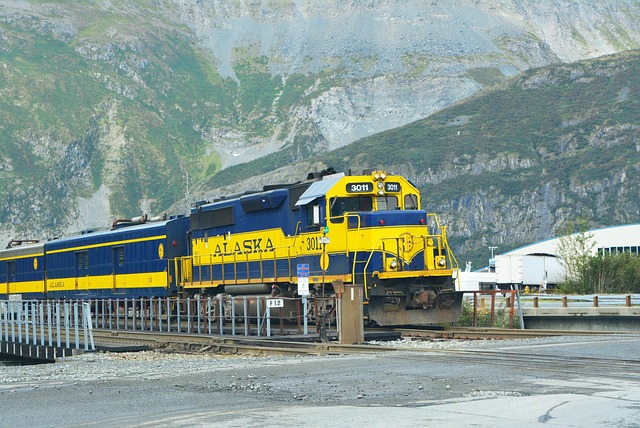Share This Article:

Do You Know the Rule?
In Alaska, what's the procedure involved when a workers' compensation claim comes up? Simply Research subscribers have access to that information and more, but we highlight it here.
Filing Claims
A claim for compensation may be filed with the board in accordance with its regulations at any time after the first seven days of disability following an injury, or at any time after death, and the board may hear and determine all questions in respect to the claim.
Notification
Within 10 days after a claim is filed the board, in accordance with its regulations, shall notify the employer and any other person, other than the claimant, whom the board considers an interested party that a claim has been filed. The notice may be served personally upon the employer or other person, or sent by registered mail.
Hearings
Before a hearing is scheduled, the party seeking a hearing shall file a request for a hearing together with an affidavit stating that the party has completed necessary discovery, obtained necessary evidence, and is prepared for the hearing.
An opposing party shall have 10 days after the hearing request is filed to file a response. If a party opposes the hearing request, the board or a board designee shall within 30 days of the filing of the opposition conduct a pre-hearing conference and set a hearing date. If opposition is not filed, a hearing shall be scheduled no later than 60 days after the receipt of the hearing request. The board shall give each party at least 10 days' notice of the hearing, either personally or by certified mail.
After a hearing has been scheduled, the parties may not stipulate to change the hearing date or to cancel, postpone, or continue the hearing, except for good cause as determined by the board. After completion of the hearing the board shall close the hearing record.
If a settlement agreement is reached by the parties less than 14 days before the hearing, the parties shall appear at the time of the scheduled hearing to state the terms of the settlement agreement. Within 30 days after the hearing record closes, the board shall file its decision. If the employer controverts a claim on a board-prescribed controversion notice and the employee does not request a hearing within two years following the filing of the controversion notice, the claim is denied.
Evidence
At the hearing the claimant and the employer may each present evidence in respect to the claim and may be represented by any person authorized in writing for that purpose.
Medical or Rehabilitation Information
If the board or the board's designee limits the medical or rehabilitation information that may be used by the parties to a claim, either by an order on the record or by issuing a written order, the division, the board, and a party to the claim may request and an employee shall provide or authorize the production of medical or rehabilitation information only to the extent of the limitations of the order. If information has been produced that is outside of the limits designated in the order, the board or the board's designee shall direct the party in possession of the information to return the information to the employee as soon as practicable following the issuance of the order.
Death
An award of compensation for disability may be made after the death of an injured employee.
Physical Exams
An injured employee claiming or entitled to compensation shall submit to the physical examination by a duly qualified physician which the board may require. The place or places shall be reasonably convenient for the employee. The physician or physicians as the employee, employer, or carrier may select and pay for may participate in an examination if the employee, employer, or carrier so requests. Proceedings shall be suspended and no compensation may be payable for a period during which the employee refuses to submit to examination.
Two-year Limit
The filing of a hearing request under suspends the running of the two-year time period. However, if the employee subsequently requests a continuance of the hearing and the request is approved by the board, the granting of the continuance renders the request for hearing inoperative, and the two-year time period continues to run again from the date of the board's notice to the employee of the board's granting of the continuance and of its effect. If the employee fails to again request a hearing before the conclusion of the two-year time period, the claim is denied.
AI california case file caselaw case management case management focus claims compensability compliance compliance corner courts covid do you know the rule employers exclusive remedy florida glossary check Healthcare hr homeroom insurance insurers iowa leadership medical NCCI new jersey new york ohio pennsylvania roadmap Safety safety at work state info tech technology violence WDYT west virginia what do you think women's history women's history month workers' comp 101 workers' recovery Workplace Safety Workplace Violence
Read Also
About The Author
About The Author
-
Frank Ferreri
Frank Ferreri, M.A., J.D. covers workers' compensation legal issues. He has published books, articles, and other material on multiple areas of employment, insurance, and disability law. Frank received his master's degree from the University of South Florida and juris doctor from the University of Florida Levin College of Law. Frank encourages everyone to consider helping out the Kind Souls Foundation and Kids' Chance of America.
More by This Author
Read More
- Jan 07, 2026
- Frank Ferreri
- Jan 06, 2026
- Frank Ferreri
- Jan 06, 2026
- Chris Parker
- Jan 05, 2026
- Chris Parker
- Jan 04, 2026
- Liz Carey
- Jan 03, 2026
- Liz Carey




